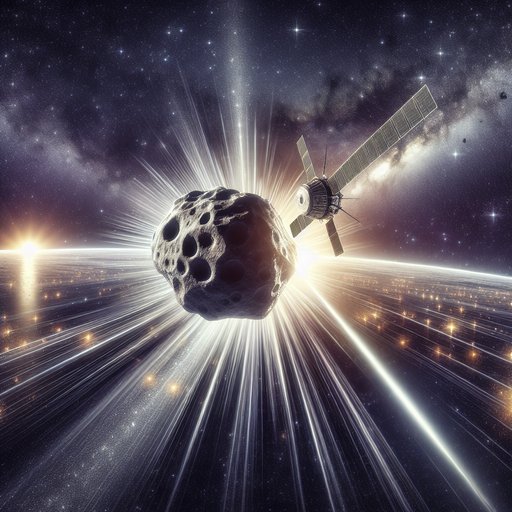 NASA's Double Asteroid Redirection Test (DART) mission is a groundbreaking initiative aimed at demonstrating the kinetic impactor technique to change the motion of an asteroid in space. This mission, the first of its kind, is a crucial step in preparing for potential asteroid threats to Earth.
NASA's Double Asteroid Redirection Test (DART) mission is a groundbreaking initiative aimed at demonstrating the kinetic impactor technique to change the motion of an asteroid in space. This mission, the first of its kind, is a crucial step in preparing for potential asteroid threats to Earth.
 Space stations, the outposts of human presence in the cosmos, have been making headlines with a series of recent developments and missions. From the International Space Station (ISS) to China's Tiangong and plans for new commercial space stations, these orbiting laboratories are playing a pivotal role in advancing our understanding of space and fostering international cooperation.
Space stations, the outposts of human presence in the cosmos, have been making headlines with a series of recent developments and missions. From the International Space Station (ISS) to China's Tiangong and plans for new commercial space stations, these orbiting laboratories are playing a pivotal role in advancing our understanding of space and fostering international cooperation.
 NASA's Perseverance rover, the most advanced astrobiology lab ever sent to another world, is rewriting our understanding of Mars. Since its landing in February 2021, the rover has been exploring the Jezero Crater, a region believed to have once been flooded with water, in search of signs of ancient microbial life.
NASA's Perseverance rover, the most advanced astrobiology lab ever sent to another world, is rewriting our understanding of Mars. Since its landing in February 2021, the rover has been exploring the Jezero Crater, a region believed to have once been flooded with water, in search of signs of ancient microbial life.
 The advent of advanced telescopes has dramatically transformed our understanding of the cosmos. These sophisticated instruments, capable of peering into the farthest reaches of the universe, have unveiled phenomena that were once beyond human comprehension. From the discovery of distant galaxies to the detection of exoplanets, telescopes have become the cornerstone of astronomical exploration.
The advent of advanced telescopes has dramatically transformed our understanding of the cosmos. These sophisticated instruments, capable of peering into the farthest reaches of the universe, have unveiled phenomena that were once beyond human comprehension. From the discovery of distant galaxies to the detection of exoplanets, telescopes have become the cornerstone of astronomical exploration.


































































